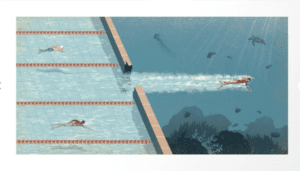
Now, that I’ve just taken my chances and submitted my application to one of the major research grants in my field, I decided to also share a small part of it with whomever is reading my blog. I also regard it as the latest draft version of my dissertation proposal, that I’m going to defend by the end of this semester. This is where my project currently stands, and as an exercise of transparency I wanted others to be able to see it. It’s also part of my experimentation with exposure, that is I’m pushing myself out of the comfort zone in order to improve my work. Feel free to critique it/comment on it (from any aspect) either here or by sending me a private message.
“Introduction
What did a star-architect of Shanghai, a watchmaker in Harbin and some anti-Habsburg conspirators in Tianjin have in common? They all were Austro-Hungarian prisoners of war who escaped Siberian captivity and found asylum in Republican China. Arriving by the hundreds from the Russian Far East during the years of World War One and the following Civil War in Russia, their admission, settlement and administration in the subsequent decades posed several challenges, as well as opportunities to different actors involved. These included the demonstration of state administrative competence in a post-imperial China that sought international recognition, the alternate use and neglect of emigrant citizens and their diasporas by post-Habsburg successor states, and the laying down of the foundations for a relief-system that helped to save thousands of Holocaust survivors.
My research focuses on refugee administration, citizenship and diaspora formation in an early twentieth century Sino-Central European context. At the core of my project are individuals from the former territories of the Habsburg Empire who arrived as refugee prisoners of war to live in China between 1915 and 1949.
My careful examination of the fluid relationship between the former Austro-Hungarian soldiers-turned expatriates and the authorities of subsequent regimes that ruled China in the period will help to complicate the conventional perspective on China’s internationalization process, and offer insight into its first engagement in the emerging interwar humanitarian regime. Focusing on the consular representation of various Central European states in the post-World War One period will allow me also to shed light on how these emigrant individuals and their communities were both a concern and instruments for the countries whose citizenship they claimed, and who claimed them as their citizens. Finally, by investigating the extent of which ex-prisoners of war set precedents and became facilitators in the Jewish Holocaust relief in China just twenty years later, I will unearth a hitherto overlooked continuity between two waves of refugees.
Overall, my project represents the first critical exploration of Austro-Hungarian refugee soldiers that draws upon four bodies of literature, and a unique set of sources in Chinese, Hungarian, German, Dutch, Italian, English, Czech and Russian. This shall allow me to reconstruct the transnational history of forced movement of and humanitarian assistance to vulnerable communities, thus representing a substantial contribution to our understanding of the pressing phenomenon of displacement, and the reactions it elicits in China and the world.”
Leave a Reply
You must be logged in to post a comment.